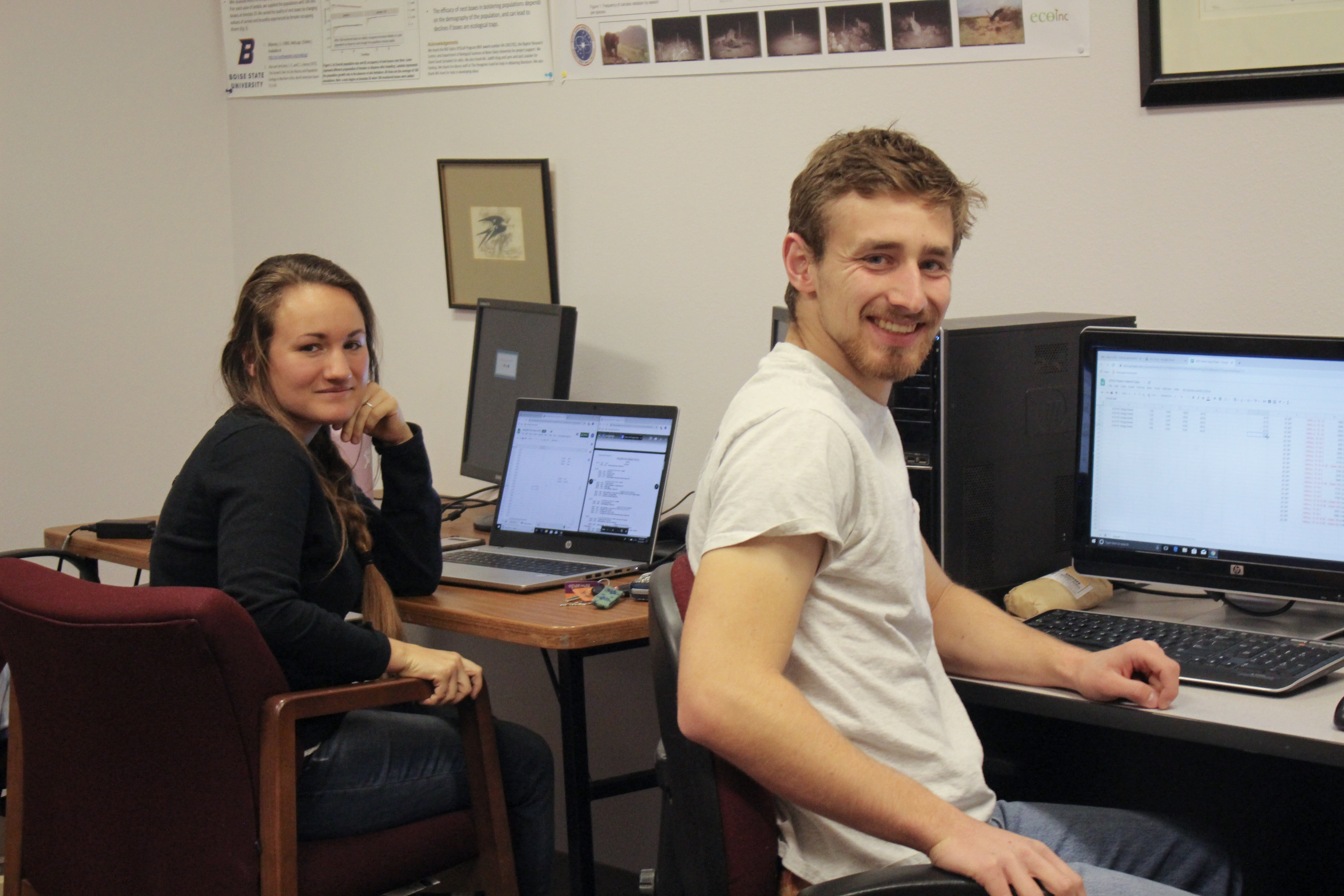The Peregrine Fund offers Vertically Integrated Projects (VIP) positions to Boise State University students interested in raptor biology and conservation. VIP Projects allow undergraduate students to earn academic credits by working alongside faculty pursuing ambitious, multi-semester projects. Students will gain hands-on experience, develop skills over time, and work on an interdisciplinary team.
Amanda Hancock, one of three fall 2019 VIP students, says her responsibilities with the Peregrine Fund include entering data from field work into Excel for later analysis. Ms. Hancock is especially interested in raptor biology and hopes to apply for a Master’s after a few years of field work. This VIP project provides a unique opportunity that allows her to do similar work.
Jasmina Hukic, a junior and another of the fall 2019 VIP students, wants to be a dentist. She became familiar with Dr. McClure’s work while working in the Biology graduate programs office. Dr. McClure is the Director of Global Conservation Science at the Peregrine Fund, and Ms. Hukic thought his research, preventing raptor extinction, was interesting. Applying for a VIP position was a great way for her to get involved in a cause she cares about, and, since joining, she has learned how to more effectively communicate scientific findings to the public.

Jeremiah Sullivan is a Boise State senior well on his way to a biology degree with an EEB emphasis. He has been involved with The Peregrine Fund’s VIP project for three semesters, doing similar work to Ms. Hancock. He was referred to the position by the Biology Department advisor, Clay Cox. Mr. Sullivan eventually wants to get an advanced degree and hopes to do field work with migratory birds. Last semester he presented on the setup of American Kestrel nest boxes at Boise State’s Undergraduate Research Conference and will soon be assisting on a paper with the same topic.
Dr. Sarah Schulwitz is the Director of the American Kestrel Partnership and works closely with Boise State’s VIP students. She explains that the majority of the students’ work is entering data. It takes a great deal of data to track the rise and fall of falcon populations and to categorize the threats that they face. The VIP students are primarily taking hard data and making it more accessible to the average viewer, which in turn, will make it easier for other scientists to analyze. According to Dr. Schulwitz, the VIP students help in data collection, organization, and analysis. The Peregrine Fund is grateful for their time and passion.
The Peregrine Fund takes on new VIP students every semester. If you’re interested, email Clay Cox for more details, or watch your student inbox for emails from the Biology Department for similar internship opportunities. Explore VIP projects.
Story – KatieLee Sliger